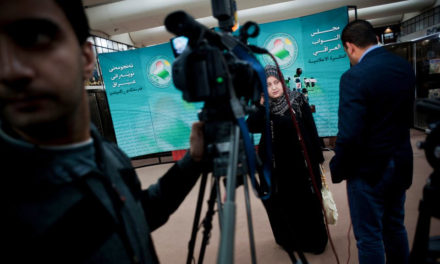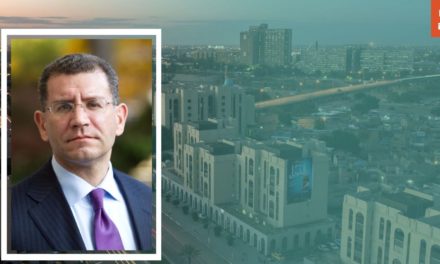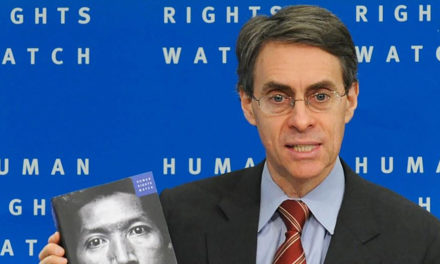Iraq has managed to territorially defeat Da’ish and liberate its cities, which has decreased sectarian tensions among citizens. The next stage is just as difficult, which is rebuilding the state from its institutions to its damaged cities. As difficult as it is, Iraq’s policymakers know they have no other choice but to remain on this path. There are many difficulties ahead, one of which is that regional powers would prefer not to see Iraq return to its normal position in the Arab world. Although the new government has a long road ahead of it, it is attempting to strengthen bilateral relations with its neighbours.
There is strong cooperation between the Presidency and the Prime Minister’s Office to regulate Iraq’s foreign relations. To meet several of the targets laid out, Iraq has taken a step forward with Jordan.
Energy for Security
Iraq is trying to find another entrance to the international community through the Jordanian gate. The Government of Iraq has recently agreed with its Jordanian neighbour on exporting more than 10 thousand barrels a day, which Amman will benefit from, with Baghdad providing preferential rates. Other trade agreements have been agreed upon as well, improving bilateral relations on multiple levels.
Although there were many criticisms from Iraq citing the one-sidedness of this deal, Iraq’s Prime Minister Adil Abd Al-Mahdi implicitly asserted that diverse geopolitical motives were behind this agreement. Abd Al-Mahdi stated that the oil would be conveyed by tankers and securing the area in which these tankers will pass through will be a priority for both governments. In fact, this cannot be done without security cooperation to control this unstable region of western Iraq.
Jordan is considered an important piece of the puzzle in relation to the security of western Iraq for several reasons. The Iraqi-Jordanian border separates many tribes that share the same heritage and culture. Additionally, various radical Islamists came to Iraq from Jordan, such as Abu Musab Al-Zarqawi. Baghdad could not have been able to kill Al-Zarqawi without intelligence from Amman. Now, there is still a lingering fear of the possibility of Da’ish returning. Thus, both states must cooperate to prevent this scenario from becoming a reality. Oil for security is the best description of the deal Iraq and Jordan signed last week.
Another plan was set up between the two sides. They discussed the ability of establishing an oil pipeline that would stretch from Basra to the port of Aqaba. It is also billed to pass through western Iraq. This will increase the strategic importance of Anbar province in the coming geoeconomic interactions.
Neutralization of Ba’athists
Since 2003, Jordan has been a popular destination for Ba’athists who left Iraq after the fall of Saddam’s regime. Since then, there have been many events organized to celebrate the day of the establishment of the Ba’ath party. Furthermore, they annually attend a special memorial service to remember the execution of Saddam Hussein. This has put the Jordanian Government in an awkward position, as it is accused by many Iraqis of turning a blind eye to such activities. Thus, many of Iraq’s Shia view the Jordanian Government as an enemy that still supports those who hope to turn back the clock to the period of Ba’athists ruling Iraq.
Many on social media in Iraq criticized the agreement between Iraq and Jordan. Many commentators claimed that Iraq signed a humiliating deal that rewards a Jordanian Government that stood with Ba’athists. As a result, a fierce campaign was launched against Iraq’s Prime Minister who has been accused of conspiring against real Iraqi interests.
In signing this deal, the hope is that the Jordanian government will make an effort to maintain this new era in its relations with Iraq by not allowing Ba’athists to hold events that are humiliating to Iraqis. Alhough Ba’athists do not get direct support from Amman to destabilize the Iraqi situation, surely the Jordanian Government will not sacrifice 10 thousand barrels of oil a day for the sake of a handful of people who make their living off of slogans glorifying the heritage of the Ba’ath party. This deal should help in creating a new political and social atmosphere in Jordan that will shift Jordanian views towards their neighbour Iraq, rather than Ba’athists from Iraq.
Phasing out Sectarian Fears
Historically, King Abdullah II of Jordan was behind coining the term “Shi’a Crescent”. In 2004, he warned his Arab allies of Iranian influence and said that Iran wanted to extend its hegemony to reach the Mediterranean Sea through a new treaty including Tehran, Baghdad, Damascus, Beirut and then would swallow the other Gulf States.
This term led to the polarization of the Arab world. Sectarian divisions were seen emerging in many countries, especially in the most diverse states. Iraq was the most fragile player in this dangerous game, with sectarian war erupting in 2006 which led to many lives being lost and future consequences, such as Da’ish.
After years of misusing sectarian terms such as ‘Shi’a Cresent’ in the field of politics and social studies, the whole region is now thinking in new ways. All sides fear that the sectarian violence that engulfed Iraq could spill over into their communities and so their security will be threatened. Therefore, Iraq is taking advantage of this shift in thinking and attempting to invest positively with other states.
Jordan, which is a small country, has played a significant role in Iraq’s affairs. Its political behaviour can be morphed more in favour of Iraqis. Jordan can be the key to alleviating the sectarian mood in this region. Thus, we can say that Iraq might think of reviving some important points of the Fertile Crescent’s idea to replace the ‘Shi’a Crescent’ that has hurt present day Ancient Mesopotamia and the Levant.

Diyari Salih
Diyari Salih is an Iraqi academic with a PhD in Political Geography, Baghdad and a Post-Doctorate in International Relations, Warsaw, focusing on geopolitical issues in Iraq.










